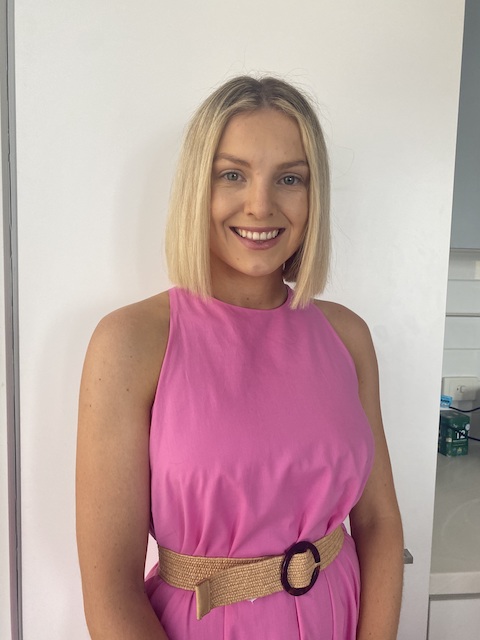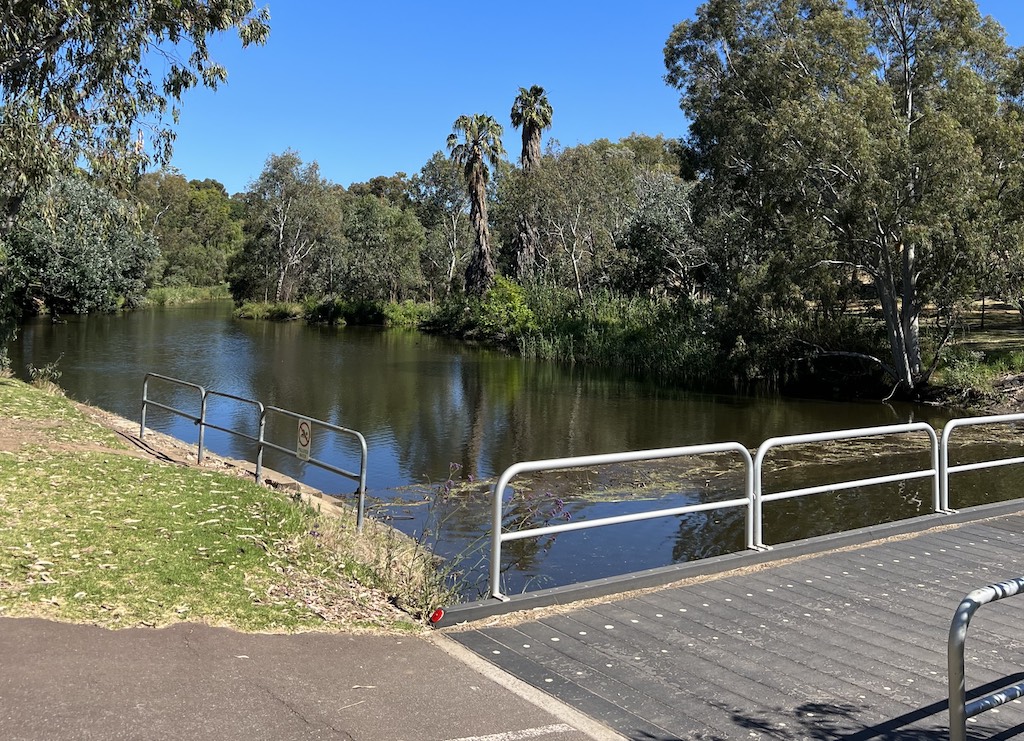In their final year of training, undergraduate physiotherapy students at the University of South Australia develop their skills and knowledge in health promotion through experiential learning. The students apply concepts and theory of health promotion to a project proposed by either the University or an industry partner. In 2021, Lauren Pike and Erin Watson chose the project ‘Environmental Physiotherapy Practice – Enhancing Active Transport’ proposed by physiotherapy lecturers, Dr Caroline Fryer and Dr Rose Boucaut. In this post, Lauren and Erin share their story of learning about and promoting Active Transport.
As we write this post, we are finalising our Bachelor of Physiotherapy (Honours) studies at the University of South Australia and keen to start practicing as fully qualified physiotherapists. We are both from rural areas of South Australia and Erin will be returning to the state’s South-East region to work at a clinic in a rural town. Lauren will work in a musculoskeletal clinic in the state’s capital city, Adelaide.
Our personal experience in actively travelling to university and our passion for caring for the environment drew us to this health promotion project. The project’s aim was to encourage the use of active transport to and from the University’s City East campus by staff and students of the Physiotherapy Program to promote both physical and planetary health. Our role was to conduct research to understand the topic of active transport and the characteristics of the population group we were targeting to inform a health promotion strategy and resources. Our literature review highlighted most Australian university students engaged in low levels of physical activity (1). Individual benefits of using active transport include improved mood and self-reported health but there are many external and internal factors that can deter a person’s involvement in this activity (2). The environmental benefits of reducing car trips with either biking, walking, or public transportation include a reduction in air pollution and greenhouse gas emissions.
Our survey of University of South Australia physiotherapy program staff and students found half the respondents use active transport all or most of the time when commuting to campus. This was good news but left a significant cohort who did not engage in active transport regularly. Key factors that helped respondents to use active transport were its cheaper cost, personal health benefits, appropriate distance from University and good weather conditions. The key barriers they identified to using active transport were poor weather, and long travels times or distances from campus. A third of respondents indicated they would like to know more about active transport.
We used our new knowledge to develop a targeted health promotion strategy including creation of two resources to promote Active Transport to physiotherapy program staff and students. A short, animated video promotes evidence-based benefits of active travel and different active transport options. The video is supported by a printed resource giving specific tips for making active travel easier to and from the City East campus. This includes locations of campus bike storage, campus security escorts, walking and bike trails to campus, and goal setting tools. The resources have already been shared with physiotherapy program staff at their regular meeting and will be shared with students at orientation events. The resources will be made available to a wider audience of students and the public through the physiotherapy program’s social media networks. The Executive Dean of our Academic Unit was impressed by the work and committed to sharing it through his own networks. The University marketing department are liaising with student support services about promotion to a wider student cohort on campus. Future health promotion plans are to promote active transport to clients of student physiotherapy clinics located on campus including building the capacity of physiotherapy students in their role promoting individual and planetary health.

Lauren Pike
PT, BSc (Hons), University of South Australia
Lauren is a new-graduate physiotherapist in Australia, who has recently received her registration. She has interests in musculoskeletal and sports physiotherapy and holds a passion for returning patients to the activities they love, as well as empowering people through active lifestyles. She also enjoys spending time outdoors riding her bike and playing netball.

Erin Watson
PT, BSc (Hons), University of South Australia
Erin is a new graduate physiotherapist in Australia, who has recently received her registration and has travelled back to her local town in country South Australia to undertake a role in pilates and physiotherapy at a private practice. She has a particular interest in the use of exercise and Pilates in the recovery of both sport and everyday injuries. She enjoys an active lifestyle where she is planning on returning to netball this year, following a knee injury.
Prior to completing this project, we were not aware of the relationship between physiotherapy and planetary health. Through the Health Promotion course and the Environmental Physiotherapy Association website, we now understand the important relationship between these two aspects of our lives. The key things we learnt were:
(1) Planetary health can adversely affect physical health on an individual and global population level.
(2) Being exposed to the natural environment can improve mental health and self-reported health, reduce pain, and inhibit the transition of acute pain to chronic pain
(3) It can be easy to include active travel in daily routine!
Incorporating walking or cycling or scootering in regular travel can be a small change in routine with large benefit for both the person and the environment. During the project, Lauren bought a bike so she can participate in active travel over longer distances. She has thoroughly enjoyed being able to ride to campus and other places and put our project into practice!
One of the main opportunities we have found through this project is being able to present and prescribe active travel as a health intervention to our clients. We are excited to continue advocating for more active lifestyles and using our ability as physiotherapists to contribute to environmental issues. We found the Environmental Physiotherapy Association website was a catalyst for our understanding and inspiration for environmental physiotherapy and our project. It provided us with helpful information and resources, and we would like to thank the association for their important work. Our biggest encouragement for other physiotherapy students would be to find an area of environmental physiotherapy you are passionate about and let that drive you in growing your professional and personal practice.

References
1) Plotnikoff, Ronald C, Costigan, Sarah A, Williams, Rebecca L, Hutchesson, Melinda J, Kennedy, Sarah G, Robards, Sara L, … Germov, John 2015, ‘Effectiveness of interventions targeting physical activity, nutrition and healthy weight for university and college students: a systematic review and meta-analysis’, The International Journal of Behavioural Nutrition and Physical Activity, vol. 12, no. 1, pp. 45–45
2) Toner, A, Lewis, JS, Stanhope, J & Maric, F 2021, ‘Prescribing active transport as a planetary health intervention – benefits, challenges and recommendations’, Physical Therapy Reviews, vol. 26, no. 3, pp. 159–167.


Well done to both of you, Erin and Lauren! This was an impressive read and I really liked the video content!
Well done Erin and Lauren! Adelaide is a beautiful city, we are lucky. Good luck in your endeavours 🙂
Thank you very much for sharing your experience as it inspired me! I offer the possibility of a similar experience to our students in Switzerland. The weather conditions are only a little bit different from October to March than in Australia, but let’s see what they would find through their survey 😉
Dear Erin and Lauren, thank you very much for sharing your project! Best Regards from Austria to Australia.